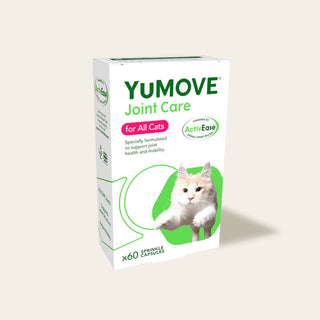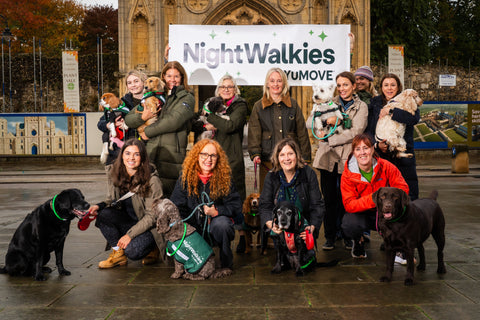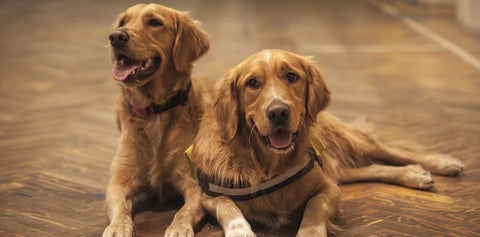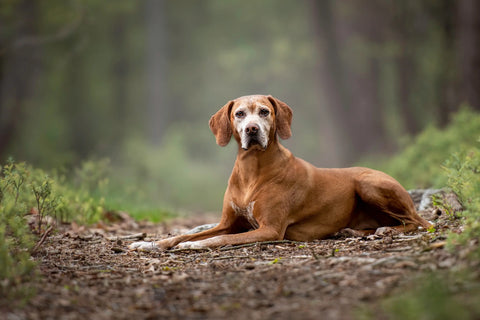
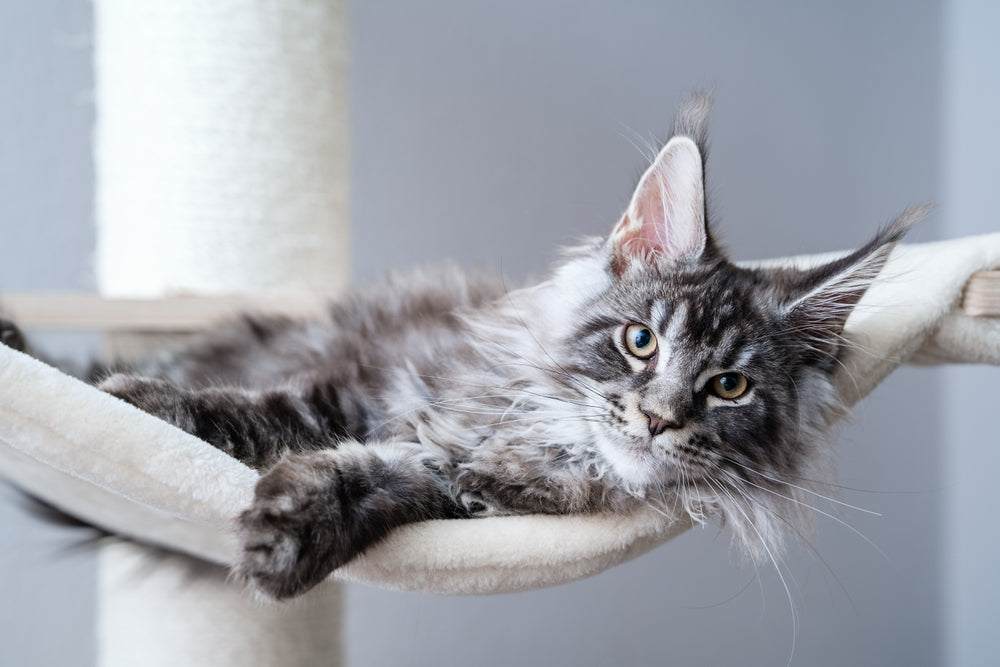
How to support your senior cat’s joints
Ever watched your senior cat get ready to jump, only to see them pause and think twice? It might be a clue that their joints aren’t as nimble as they once were.
According to studies, 60% of cats over the age of six face changes to their joint health, and this rises to 90% by age 12. But cats are pretty good at keeping a stiff upper lip, so it’s not always easy to spot when they need a bit of extra help.
In this post, TV vet Dr Scott Miller joins us to look at simple ways to spot if your cat is slowing down and share tips on how to help them stay happy and active. From including cat joint supplements in their diet to making small changes around the house, there are loads of easy things you can do.
The key signs of joint stiffness in cats
Cats are masters at putting on a brave face. But while they might not make a fuss, there are subtle signs that could indicate your senior cat needs a bit more care for their joints:
- Less active – Noticed your cat’s usual sprint around the house has slowed to a leisurely stroll? A dip in activity levels might suggest their joints are a bit stiff.
- Seeking solitude – As Dr Scott observes, "Cats tend to hide away when they’re not feeling up to par. If your cat is suddenly keeping to themselves more, preferring their own company, it’s worth a closer look... whether they’re keen on the idea or not!"
- Hesitant jumps – If your cat stops to think twice before making a jump that used to be no bother, it could mean their joints aren’t as flexible as before.
- Avoiding high spots – Those once-favourite lofty spots, like the top of the wardrobe, might now be given a miss. Shying away from high perches can be a sign of joint stiffness.
- Less sociable – A noticeable withdrawal from social interactions, whether with humans or other pets, could suggest your cat isn’t feeling their best and might be dealing with some joint stiffness.
- Reduced grooming – A decline in grooming habits or a coat that’s not quite as pristine as usual could indicate that reaching certain spots has become a challenge, possibly due to joint stiffness.
- More vocal – If your cat starts meowing more than usual, it might be their way of saying something’s not right, possibly with their joints.
- Toilet habits – Any changes in litter tray habits or the odd accident indoors might also be connected to joint stiffness, as this can influence their ability to get in to and out of their tray.
If you think joint stiffness might be bothering your cat, a chat with your vet is a great first step. And don’t forget, there are plenty of things you can do right at home to make life easier for them and support their joint health.

5 ways to support your older cat’s joints
If you think your cat might be experiencing joint stiffness, or if your vet has noticed something similar, here are some simple steps you can take to help out:
-
Create a cosy sleeping spot – As cats grow older and movement becomes a bit more of a challenge, a soft, plush bed becomes even more of a treat. Orthopaedic cat beds are fab because they have lots of padding that shapes itself around your cat, giving their joints a gentle hug while they sleep. How lovely is that?~
-
Easy access to favourite spots – Add some steps, shelves, or ramps around your home to help your cat reach their top spots without a fuss. And when it’s chilly outside, try to keep them in where it’s warm.
-
Elevate food and water bowls – If you haven’t tried this yet, raising your cat’s bowls can make a big difference. It means they don’t have to bend down so much, which is easier on their back and hips.
-
Regular vet check-ups – Like Dr Scott says, “It’s normal for cats to slow down a bit as they get older. But that’s why an annual check-up is so good – it helps make sure everything’s okay.”
- Watch their weight – Keeping your cat at a healthy weight is key. Dr Scott explains, “The less they weigh, the less pressure on their joints. And that means they can stay active and enjoy life for longer.”
Dr Scott shares a helpful tip for understanding our cats better as they get older: “I think it’s quite important for owners to think about where their cat is in terms of their ageing as if they were a human, and then to equate that to people they might know. Because actually, we share a lot of common ailments.”

We recommend: YuMOVE Joint Care PLUS for Cats
When it comes to taking care of your senior cat's joints, YuMOVE Joint Care PLUS for Cats – our NEW high-strength cat joint supplement designed for older and stiffer cats – helps to aid stiff joints, help mobility and support joint structure.
Let’s hear from Dr Scott on the subject: “Changes to joints and the resulting stiffness are common findings in ageing pets, though a supplement such as YuMOVE Joint Care can help support mobility. It is important to do your research on supplements. The high-quality ingredients from reputable sources present in YuMOVE make it an excellent choice for supporting your pet’s joints.”
We couldn’t agree more.
Every cat deserves the chance to lead their most active life, for life. As a loving owner, it's important to notice any changes in their behaviour, so you can provide the right support. Check out our range of cat joint supplements today.
